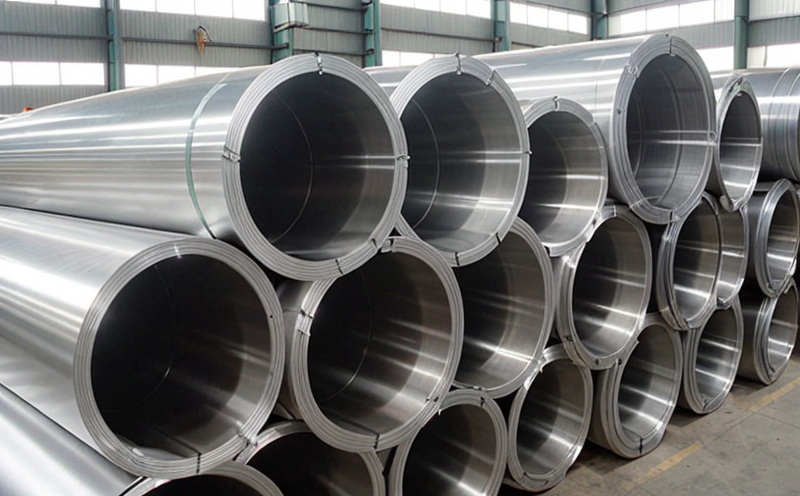ISO 22007 Thermal Conductivity Testing of Marine Insulations
The ISO 22007 standard provides a comprehensive approach to the thermal conductivity testing of insulating materials, particularly relevant in marine environments. This service focuses on ensuring that insulation products used in marine equipment meet stringent standards for performance and safety.
Thermal conductivity is critical in marine applications where heat management can directly impact the efficiency, longevity, and reliability of equipment. In a maritime setting, proper insulation minimizes heat transfer, reducing energy consumption and enhancing thermal stability within enclosures. The ISO 22007 protocol ensures that insulations are tested under realistic conditions to assess their performance accurately.
Our expertise in this area involves rigorous preparation of specimens according to ISO standards, utilizing state-of-the-art equipment for precise measurement. We employ a range of methodologies tailored specifically for marine applications, ensuring accurate and repeatable results.
The testing process begins with careful selection and preparation of the sample, which must represent the material under test accurately. This involves cutting the sample into standardized dimensions while maintaining its integrity. Once prepared, the sample is subjected to controlled conditions in our climate chambers designed specifically for thermal conductivity tests.
During the test, we use high-precision calorimeters that adhere strictly to ISO 22007 guidelines. These devices measure heat flow through the material at various points, allowing us to calculate thermal conductivity accurately. Our methodology ensures compliance with international standards, providing reliable data essential for quality control and R&D.
After testing, we produce detailed reports that include all relevant parameters used during the test, along with calculated values of thermal conductivity. These documents serve as critical references for stakeholders involved in marine equipment manufacturing and design processes.
The importance of this service cannot be overstated; it helps manufacturers ensure their products meet regulatory requirements while also optimizing performance within challenging environmental conditions. By adhering to ISO 22007, we contribute significantly towards improving the safety and reliability of marine equipment used worldwide.
- Thermal Conductivity Measurement: Utilizing advanced calorimeters designed for precise measurement under controlled temperature gradients.
- Sample Preparation: Following strict ISO guidelines to ensure accurate representation of the material being tested.
To summarize, our service offers a thorough evaluation of thermal conductivity in marine insulation materials using best practices outlined in ISO 22007. This approach guarantees high-quality testing that meets industry standards and supports informed decision-making for those involved in designing and manufacturing marine equipment.
Benefits
Implementing the ISO 22007 standard offers numerous advantages to stakeholders, particularly within the marine sector. By adhering strictly to these guidelines during thermal conductivity testing of insulating materials, manufacturers can ensure their products meet rigorous quality benchmarks.
Enhanced Product Quality: Rigorous adherence ensures that only high-quality insulation materials pass muster, leading to superior product performance and durability.
- Promotes consistent performance across all manufactured units
- Aids in identifying substandard materials early on
- Supports continuous improvement through accurate data collection
Regulatory Compliance: Ensures compliance with relevant international regulations, reducing the risk of non-conformance penalties and improving market access.
- Facilitates smooth entry into global markets
- Reduces legal risks associated with non-compliance issues
- Supports long-term business sustainability by maintaining a good reputation
Innovation and R&D: Provides reliable data for research and development efforts, helping to drive innovation in insulation technology.
- Paves the way for developing new materials and techniques
- Encourages exploration of advanced manufacturing processes
- Fosters collaboration between industry players and academic institutions
Cost Efficiency: Early identification of defects through thorough testing can save costs by preventing costly rework or product recalls.
- Avoids unnecessary expenditures on non-conforming materials
- Reduces waste associated with failed tests or prototypes
- Saves time and resources by streamlining the production process
In summary, implementing ISO 22007 thermal conductivity testing not only enhances product quality but also promotes regulatory compliance, supports innovation, and fosters cost efficiency—key factors that contribute to sustained success in the marine equipment industry.
Industry Applications
- Marine Vessels: Ensuring optimal performance of insulation systems within ship interiors, contributing to energy efficiency and occupant comfort.
- Fish Farms: Maintaining consistent water temperatures in aquaculture facilities through effective thermal management solutions.
- Cruise Ships: Enhancing passenger experience by providing stable ambient conditions throughout the vessel.
- Oil Platforms: Protecting critical equipment and personnel from extreme environmental conditions via robust insulation systems.
The ISO 22007 standard plays a crucial role in these applications, ensuring that insulating materials perform reliably under diverse maritime environments. Whether it's maintaining optimal temperatures or preserving energy efficiency, this service supports the overall reliability of marine equipment.
Use Cases and Application Examples
- Vessel Hull Insulation: Testing insulation materials used in hulls to reduce heat transfer between the engine room and external environments.
- Cargo Hold Refrigeration: Evaluating insulations for refrigerated cargo holds to maintain precise temperature control during transport.
- Liquid Storage Tanks: Assessing insulating layers protecting large storage tanks from ambient temperatures to prevent leaks or contamination.
- Onboard Electrical Panels: Ensuring proper insulation around electrical components to enhance safety and longevity.
In each case, the ISO 22007 standard ensures that insulating materials perform optimally under specific marine conditions. This service supports the development of reliable solutions for various maritime applications, ensuring both efficiency and reliability in equipment performance.





